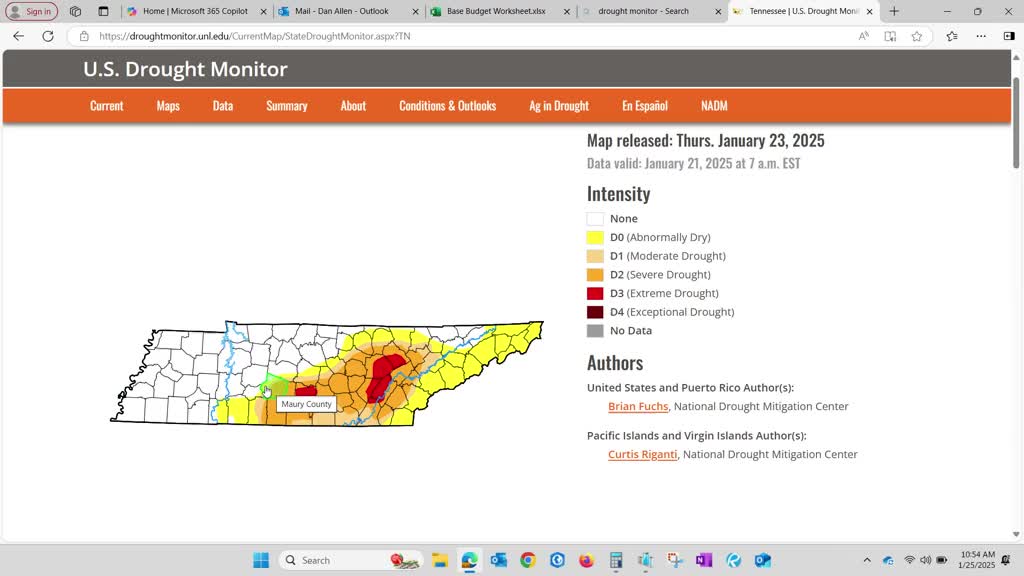Officials warn of water, sewer capacity risk; staff to prepare conservation ordinance and moratorium contingency
Get AI-powered insights, summaries, and transcripts
Subscribe
Summary
City staff warned the Board of Mayor and Aldermen that drought and wastewater treatment imbalances have created short‑term capacity risk and asked the board to authorize preparation of a conservation ordinance and a contingency moratorium plan.
Dan Allen (staff member) told the board the city faces a compound water and sewer challenge: an ongoing regional drought that has held groundwater low, persistent inflow and infiltration (I&I) in sewer mains, and biological imbalances in the wastewater plant’s oxidation ditches.
“We are very, very, very concerned,” Allen said during a technical briefing. He explained that improvements the city has made to manholes, mains and laterals so far cover a small portion of the system (he said roughly 3% of manholes have been rehabilitated) and that a large program of I&I repairs would cost in the range of $200 million to $250 million and still would not restore the margin of capacity the city needs in the short term.
Allen said the wastewater plant is operating with two treatment trains that are out of balance; one train consistently returns higher nitrogen levels than the other, and the combined output risks exceeding permit limits and poundage allowances. Staff said they expect further regulatory attention and possible fines this calendar year if plant outputs do not improve.
Because of the shortfall in capacity and the likelihood that multiple multifamily developments will come online this year, Allen recommended three steps:
- Prepare a bona fide water‑conservation ordinance with enforcement tools to curb nonessential outdoor water use during shortage conditions; staff will present that ordinance for council consideration. - Direct Development Services to prepare an amendment to the city’s Unified Development Code to reduce high‑water landscaping requirements that increase nonessential summer use. - Authorize staff to prepare a contingency plan and legal framework for a sewer‑system moratorium (board authorization requested). Allen said he did not recommend imposing a moratorium immediately but sought authority to develop a plan so the city could act quickly and lawfully if conditions require it.
Utility director Jessica Weaver and other staff said the utility will need enforcement resources to implement conservation rules and to inspect and enforce grease‑trap and other wastewater protections. The board asked staff to prepare a draft ordinance and legal analysis for later review.
What happens next: staff will draft a water‑conservation ordinance, prepare UDC landscaping amendments, and bring a moratorium contingency plan and legal analysis to the board for review; staff said they will continue working on treatment plant operational optimization and I&I inspection/repair programs.
